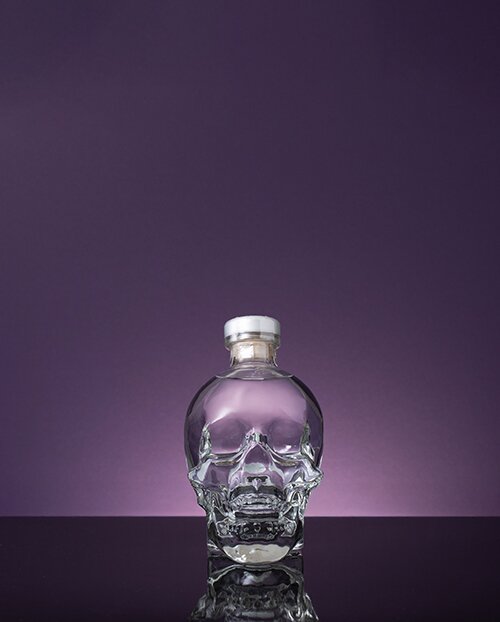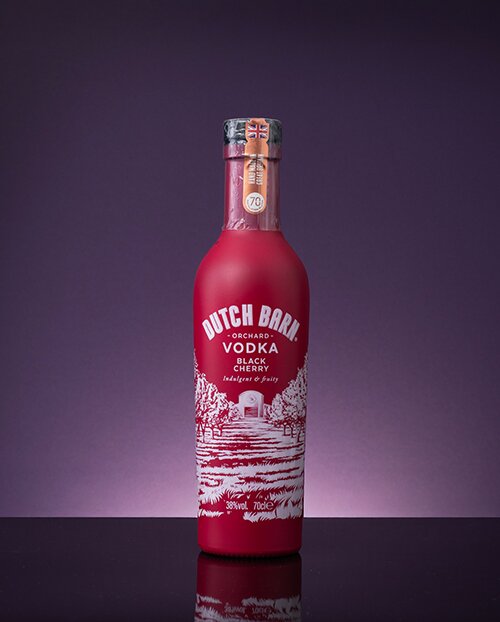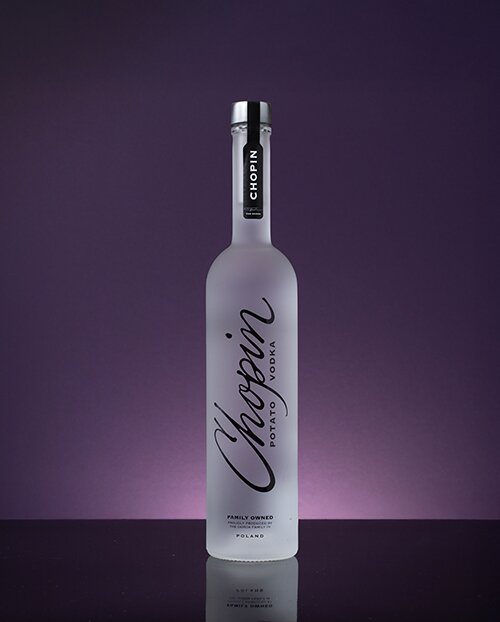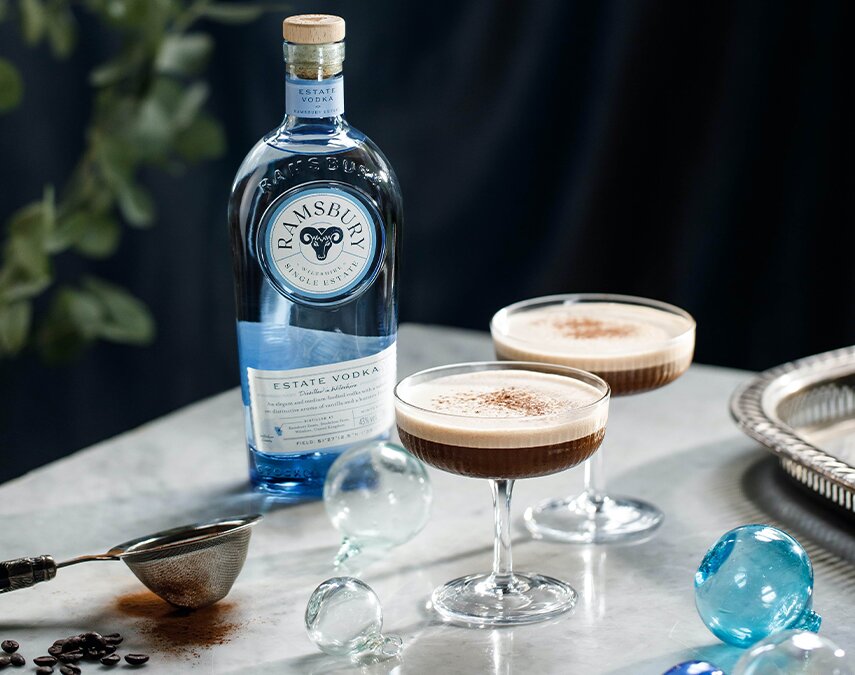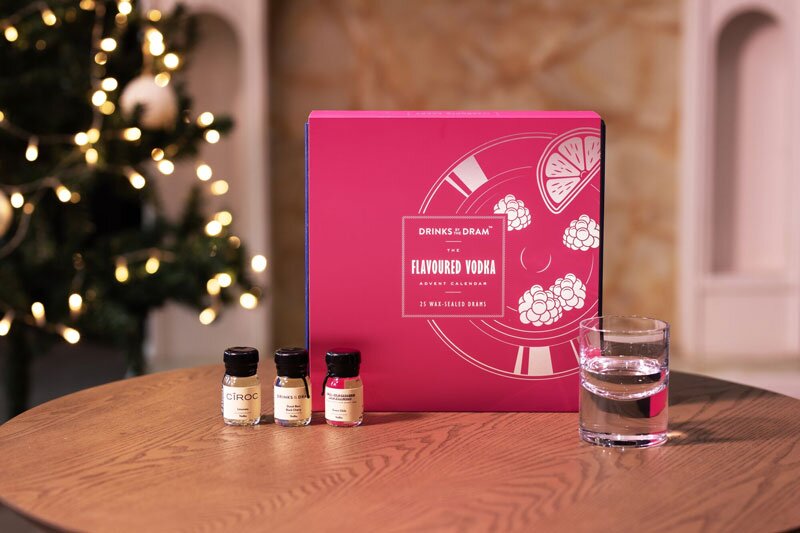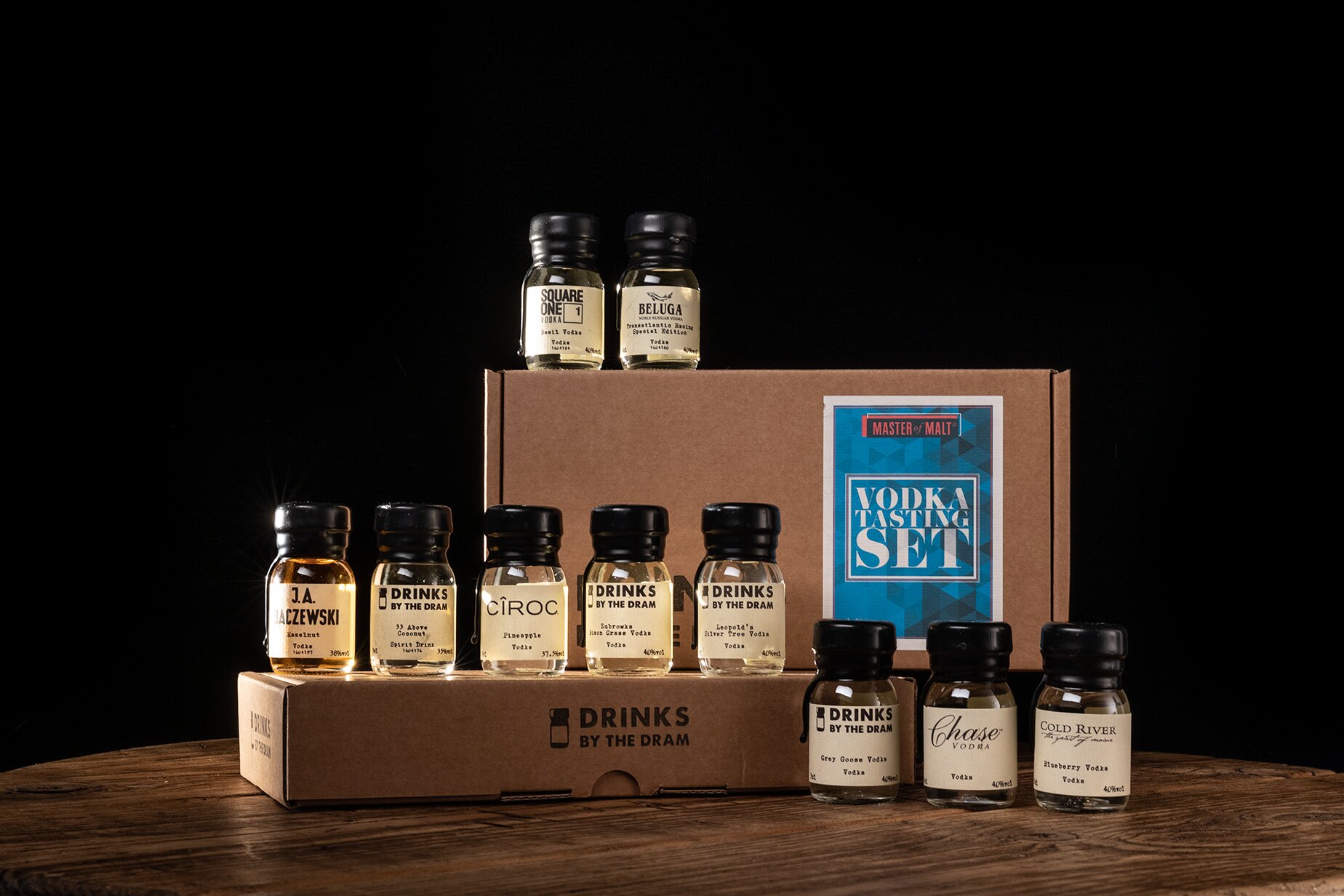VODKA
The most versatile spirit – dicover our huge range of vodka. Sip over ice, stir up a martini, or shake up all manner of cocktails.
Master of Malt stocks a wide range of vodka brands from around the world, spanning plain, flavoured and cask-aged expressions. Whether it’s a freezer-chilled sipper, a pitch-perfect Martini or a bold, characterful cocktail, you’ll find the right vodka to browse, learn about and enjoy here.
Quick Links
Vodka favourites
From well-known names to small craft producers, delve into some of our favourite vodka distilleries and brands right here.
How to choose the best vodka for you
Quick pointers:
• Grain vodka: Clean, crisp and ideal for Martinis and long drinks.
• Potato vodka: Creamier texture, great for sipping or rich cocktails.
• Grape, rye and others: Grape is smooth and fruity, rye is spicier and fuller.
• Plain, flavoured or cask aged: Plain for cocktails, flavoured for fun, fruity serves, cask aged for extra depth and gifting.
• Rule of thumb: For smooth sipping, look for quality bases and careful distillation. For cocktails, go classic grain. For gifts, choose something premium or characterful.
Popular vodka categories
Whether you're a vodka connoisseur in search of a new favourite, or you're hunting for the perfect gift for a vodka lover, you'll find plenty of inspiration here.
Best selling Vodka
The people really do know what’s good – here are our most popular best-selling vodkas for you to peruse. Uncover an old favourite, or find a new one!
Featured Vodka brands
From well-known names to craft producers across the globe, discover a whole host of brilliant vodka distilleries and brands right here.
Featured Vodka
Try something new and find a new favourite! From historic producers to small craft distillers, discover gems of the vodka world here.
Vodka new arrivals
Brand new, hot off the press, fresh out the oven! Find all the latest vodka arrivals here.
Buy 1, Get 1 Half Price on Premium Gin
Vodka Guides
Vodka does it all, but what's the secret behind the ultimate versatile spirit? We can tell you.
Vodka categories
Master of Malt stocks a wide range of vodka brands and styles, including classic Polish and Russian grain vodka, creamy potato vodka, modern cask-aged releases and bolder-flavoured options. You’ll find vodkas infused with bison grass, chilli, marmalade and plenty more, as well as oak-matured bottlings that edge the spirit toward whisky territory. It’s an easy way to explore the different types of vodka and discover what suits your taste.
Explore vodka by style to find the bottle that matches how you like to drink it. From classic smooth vodka, bold flavoured expressions and modern cask aged releases, this is the easiest way to compare different types of vodka and pick your perfect match.
Browse vodka by country to explore how different traditions shape the spirit. Whether you're after Polish or Russian classics, Scandinavian purity, American craft vodka or new world innovators, this is the place to discover vodka brands from around the globe.
Vodka on the blog
Grab your bottle out of the freezer, or stir up a Martini to sip while you read! Discover the people and the stories behind the brands, along with some top cocktail tips.
HAPPY HOUR HIGHLIGHTS
Vodka FAQs
Vodka can be made from grain, potatoes, grapes, corn, rye or even milk. The base affects texture and subtle flavour. Browse vodka by style to compare.
Is vodka gluten free?
Most vodka is gluten free once distilled, even if it’s made from wheat or rye. If you prefer to avoid grain altogether, choose potato, grape or corn-based vodka.
What’s the difference between plain vodka and flavoured vodka?
Plain vodka keeps things clean and neutral. Flavoured vodka is infused with ingredients like fruit, herbs or spices and is ideal for easy, characterful cocktails.
What is the smoothest vodka?
Smooth vodka usually comes from high-quality bases, careful distillation and gentle filtration. Potato and grape vodkas often feel especially soft and rounded.
How should I drink vodka?
Sip it neat from the freezer, shake it into cocktails like Martinis and Cosmopolitans, or pick a flavoured vodka for simple mixed drinks. Explore by style to find your perfect serve.
